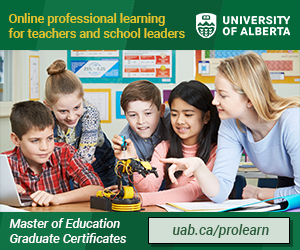For school leaders, one of the most urgent challenges is helping students make sense of a future that feels increasingly unpredictable. Career education sits at the heart of this challenge, influencing student engagement, equity, wellness and workforce readiness. Cannexus26, taking place January 26–28, 2026, in Ottawa and online, will gather educators, policymakers and community partners from across the country to look at how schools can better prepare young people for the transition beyond graduation.
Listening to students
Research presented at the conference will share insights from more than 20,000 students about their career interests. This evidence offers school leaders a window into what motivates young people today and how schools can better support their engagement and transition. Indigenous youth will also be centred in programming that demonstrates how cultural identity, community connections and wholistic approaches can shape meaningful career pathways.
Rethinking traditional approaches
Career education is moving beyond the once-a-year career day. Schools are experimenting with partnerships that link industries directly with classrooms, offering applied projects and portfolio-building opportunities. Younger learners, meanwhile, can benefit from approaches that preserve curiosity and creativity through play as a way of exploring career possibilities. Community experiences such as volunteering are also being recognized as spaces where students develop skills valued by employers.
Purpose, wellness and connection
Sessions at Cannexus26 will emphasize that career education is not just about preparing for work, but about nurturing well-being. Helping students reflect on their sense of purpose in a world being reshaped by AI, climate change and economic uncertainty has been shown to support resilience and mental health. Linking career learning to issues they care about, such as the United Nations’ Sustainable Development Goals, provides another way to help students connect education to impact, reinforcing motivation and belonging.
Equity and opportunity
Equity-focused sessions will highlight strategies for supporting vulnerable youth through programming that builds hope and a sense of possibility. Mentorship will be showcased as a practical model for expanding networks and creating access. At the same time, educators are being challenged to broaden participation in fields where representation has lagged, such as STEM and the skilled trades. These pathways are critical to both student success and workforce needs.
Recognizing the skills that matter most
Employers consistently point to communication, teamwork and adaptability as essential. Cannexus26 sessions will examine how schools can give transferable “human skills” the recognition they deserve. Making these skills visible and valued signals to students that they are essential to future readiness. Soft skills are increasingly understood as a foundation for future employability.
Looking ahead
With more than 140 sessions, Cannexus26 will offer a wealth of perspectives for those guiding the learning environment, including principals, school counsellors, co-op and career teachers. Cannexus is presented by CERIC, a national charitable organization advancing career development in Canada. The conference – the largest of its kind in the country – promises insights that move career education from the margins to the centre of school life, helping schools strengthen pathways to opportunity for all students. Learn more at cannexus.ceric.ca.




